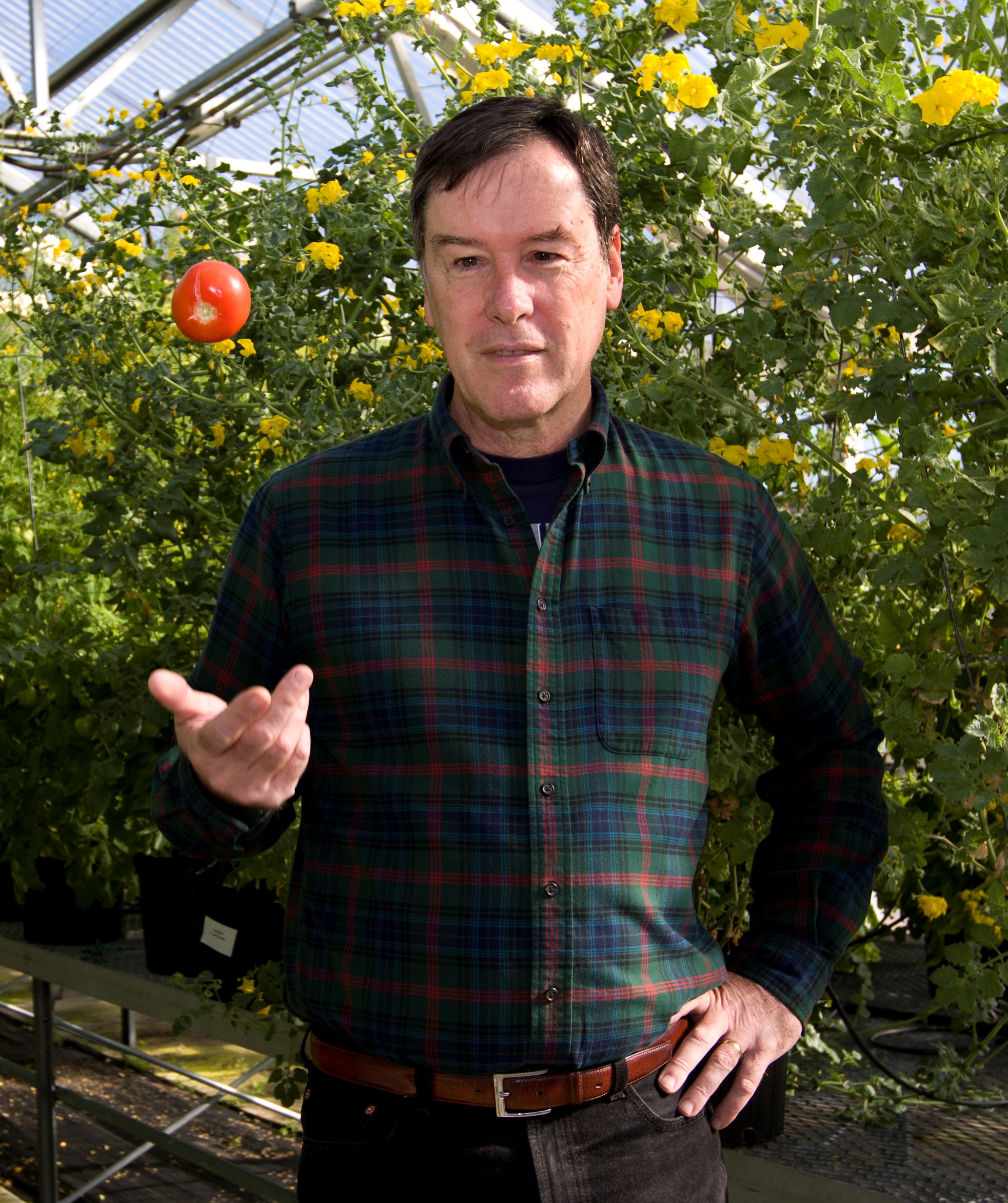Home of Harry's Tasty Tomatoes

Harry J. Klee, Ph.D., Professor Emeritus
Horticultural Sciences Department
Plant Molecular and Cellular Biology Program
PO Box 110690
Gainesville, FL 32611
Phone: (352) 392-8249
Email: hjklee@ufl.edu
CURRENT RESEARCH
Our current research has two major emphases:
- The scientific underpinnings of fruit flavor quality - We are working to understand the chemical and genetic make-up of "flavor" in fruits and vegetables. While we emphasize tomato in our research, we also have conducted research on melons, strawberries and lettuce. The taste of a tomato is the consequence of the interactions of sugars, acids and a set of 15-20 volatile compounds. These volatiles are derived from a diverse set of precursors, including amino acids, fatty acids and carotenoids. We are trying to understand how all of these chemicals are integrated into the unique flavor of a tomato is not understood. Much of our research involves defining the most desirable combination of volatiles. We use the wealth of available tomato varieties available to us, including heirlooms and wild relatives of the cultivated tomato. The ultimate goal of our research is to identify the genes that control synthesis of the flavor volatiles and use this knowledge to produce a better-tasting tomato.
- Producing a better tasting tomato – Producing a modern commercial tomato that can be shipped across the country in the dead of winter but has the taste of a backyard grown heirloom is probably not going to happen. But we do think that as we elucidate the genetics that determines flavor, we can make huge improvements. The challenge is to improve flavor without compromising yield. Growers are businessmen. Until the growers are paid a fair price for great flavor, they must focus on what pays the bills: yield. But there is a market for a great tasting tomato that will perform well with minimal challenge: the home gardener. We've exploited our large scale screening of heirlooms to identify the very best ones and crossed those with modern cultivars. What results is the best of both worlds – varieties with heirloom taste and vastly improved performance.
